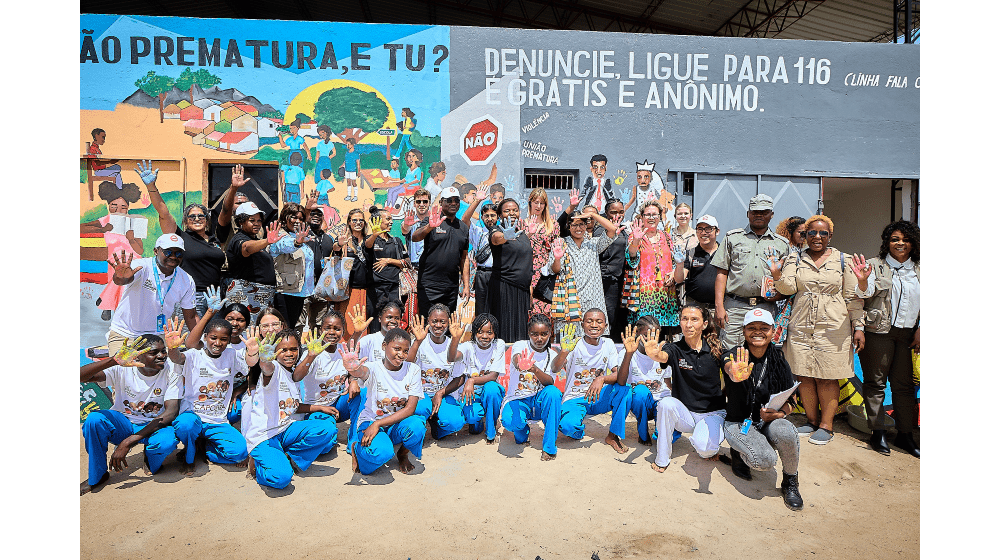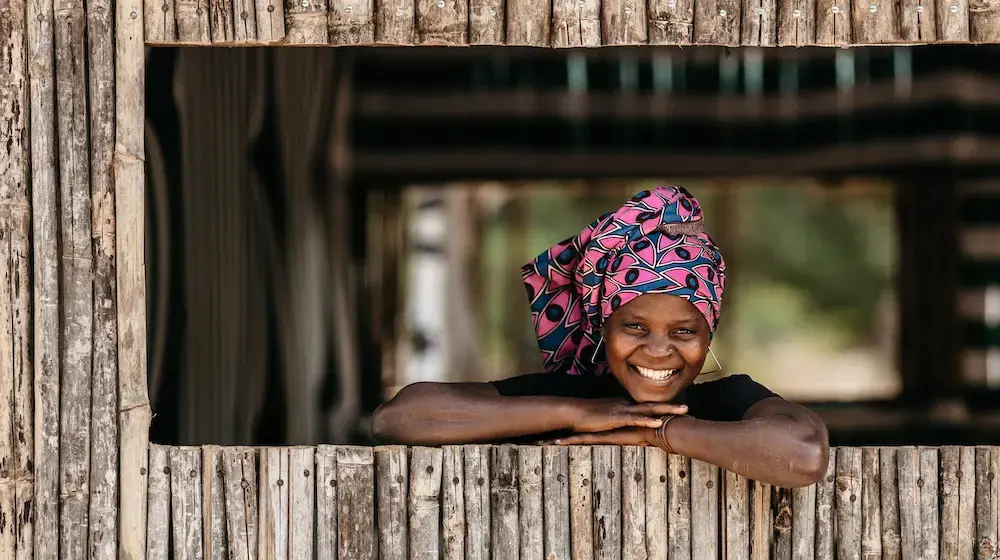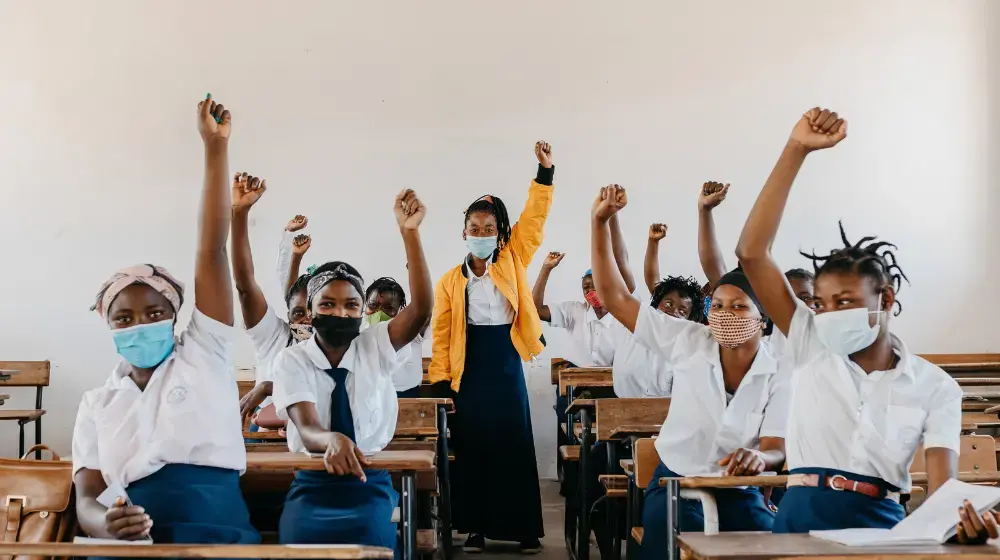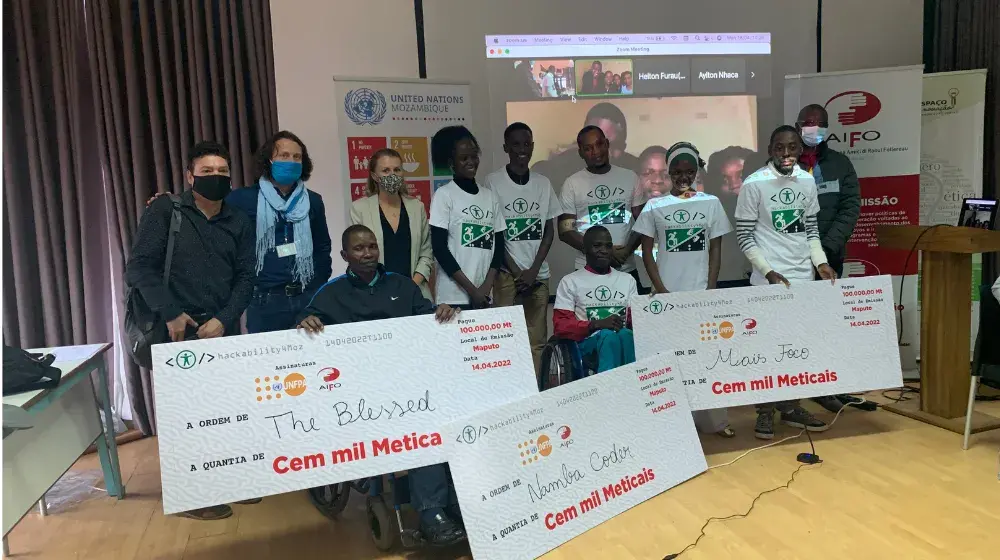Maputo, Mozambique: Senior representatives from the UNFPA-UNICEF Global Programme to End Child Marriage, including high-level representatives from development partners funding the programme, last week concluded a week-long mission in Mozambique, which involved meetings with Government, civil society, and youth, alongside programme field visits to Nampula province.
Active in Mozambique since 2016, the Global Programme is generously supported by the Governments of Belgium, Canada, Italy, the Netherlands, Norway, the United Kingdom, the European Union, and Zonta International.
As part of the mission, UNFPA and UNICEF met with development partners to discuss joint efforts to accelerate advocacy and action on the ground to end child marriage. Reflecting on these engagements and following site visits in Nampula province, Nankali Maksud, Global Coordinator for the Global Programme to End Child Marriage said, “As the world reflects on progress towards the SDG goals, including goal 5.3 on ending child marriage, it has been very encouraging to see the strong commitment, concrete efforts, and encouraging results in policy, legislation, and action on the ground in Mozambique. Now, we must build on these strong foundations and accelerate progress to end child marriage, a practice that takes away opportunity, dignity, and a future from girls as well as boys.”
With programme interventions in Nampula and Zambezia provinces, and with a nationwide focus through its advancement of relevant laws and policies, the programme empowers girls to know and exercise their human rights, including their right to choose, as adults, whether, when, and whom to marry, empower communities and strengthen services to prevent and respond to cases of child marriage. This is particularly important because Mozambique is among the countries with the highest rate of child marriage worldwide.
Since its inception, more than 766,000 girls and boys have accessed prevention and protection services in areas covered by the Global Programme. Five million individuals have been reached by mass media messaging focusing on child marriage, the rights of adolescent girls, and gender equality. More than 329,000 people have participated in group education and dialogue sessions, focusing on the consequences of child marriage and discussing alternatives to child marriage. And a total of 22,240 men and boys have actively participated in group education and dialogues that address harmful masculinities and gender norms.
“Ending child marriage not only safeguards girls’ futures, it reshapes entire communities and is the precursor for inclusive, sustainable development. It is also a must for the country to reap the benefits of a demographic dividend. The Global Programme to End Child Marriage - in support of the Government of Mozambique, and through the continued investment of its development partners - has been critical in advancing the child marriage agenda in the country, further enabling and empowering youth to attain the life and future they deserve,” reinforces Bérangère Boëll, UNFPA Mozambique Resident Representative.
As part of the mission, the Steering Committee met with national, provincial, and district Government authorities and engaged with adolescent girls and boys (including survivors of child marriage), implementing partners and service providers leading activities in targeted Global Programme areas.
UNICEF Representative to Mozambique Maria Luisa Fornara highlighted achievements and expectations for the future. “Here in Mozambique, thanks to the support of partners, combined with commitment and action from the Government, the Global Programme to End Child Marriage is delivering real impact for girls, boys and communities. Children are being supported and empowered and attitudes and behaviours are changing. As we look forward to the next phase of the Global Programme, I am confident that we can achieve even greater impact.”
The mission offered an independent assessment of progress, sustainability of interventions, and programme efficiency and effectiveness, while also highlighting best practices and lessons learned to inform future programming, starting in 2024.
###
About the Global Programme to End Child Marriage
The UNFPA-UNICEF Global Programme to End Child Marriage was designed as a 15-year programme (2016-2030) to contribute to Sustainable Development Target 5.3, which aims to eliminate all harmful practices, including child marriage. Since 2016, the programme has been implemented in Bangladesh, Burkina Faso, Ethiopia, Ghana, India, Mozambique, Nepal, Niger, Sierra Leone, Uganda, Yemen, and Zambia.
In Mozambique, the programme is implemented in six districts in Nampula and Zambezia provinces and emphasizes community engagement, enhancing girls' access to quality education and legal, social, and health services, which empowers them with information and skills, and offers alternatives to early marriage through the creation of livelihood opportunities. The Global Programme also prioritizes system strengthening in order to provide quality, holistic prevention, and response services to girls and enhance the policy environment and capacity of data generation to track progress and ensure more effective interventions.
Contact details:
Karlina Salu, UNFPA Mozambique, 840560246, jsalu@unfpa.org (English/Portuguese)
Guy Taylor, UNICEF Mozambique, 851839954, gutaylor@unicef.org (English) /
Gabriel Pereira, UNICEF Mozambique, 845221721, gpereira@unicef.org (Portuguese)





